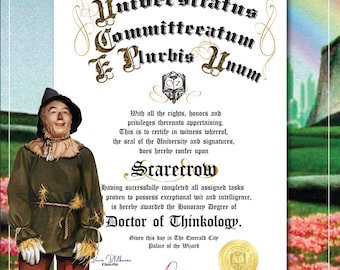The Two Americas: Class and Life Expectancy

The always interesting Anne Case and Angus Deaton — the researchers best known for their work on so-called “deaths of despair” in America — have crunched some new numbers, with startling results.
Case and Deaton have calculated the changes in adult life expectancy in the USA over the past 30 years among people with four-year-college degrees and those without.
The basic figures look like this. In 1992, the average 25 year old American with a college degree could expect to live to be about 79. By 2019, i.e. immediately prior to the pandemic, this figure had risen to 84. As a result of the pandemic, it dropped by about a year in 2021, to 83.
For the average American without a college degree, the comparable figures were 77 years old in 1992, 78 years old in 2018, and 75 years old in 2021! The latter figure is really staggering, as it means that a very simple and crude class marker — having a college degree — correlates with an eight year difference in life expectancy.
Case and Deaton point out that the 110 million or so Americans who live in College America, life expectancy both immediately before and during the pandemic looked very much like it does in the healthiest, longest-lived countries in the world: Japan, Switzerland, Spain, Italy, etc. Meanwhile, for the Other America, life expectancy looks like it does in countries like Mexico, Jordan, and Vietnam.
It’s greatly to the credit of these two university employees that they don’t give into the temptation to treat college degrees themselves as magical elixirs, that ought to be distributed more generally to the population. Instead, they identify the real problem as being pretty much the opposite of what would inspire such a prescription: That as a society we have come to use college degrees as arbitrary class markers, with devastating effects on people who don’t have them:
Why is this happening in America? We and others have documented an increase in corporate power relative to workers, which includes the decline of competition, the decline of unions and their ability to raise wages for workers without college degrees and the decreased mobility of workers from less to more successful places.
Other rich countries have been less prone to creating an elite class out of the college educated, while the United States has designed a system that too often works for itself but not for working-class Americans. They have been increasingly excluded from the local and national power that once came with unions and have lost good jobs and wages to excessive health care costs, globalization and automation. Furthermore, the children of the elite rarely serve in the military and increasingly hoard places in top selective colleges.
Unhealthy behaviors are more common among people without college degrees, but those behaviors can often be traced to the environments in which they live, lack of work and community decay, as well as their being targeted by the pharmaceutical industry in the first phase of the opioid epidemic. The destruction of good jobs for less educated men also helps explain much of the decline in stable two-parent families among non-college-educated men and women. We have also increasingly come to believe that a college degree works through often arbitrary assignation of status, so that jobs are handed out not on the basis of necessary or useful skills but by the use of the degree as a hiring screen.
The divergence with Europe is also striking. European nations generally finance their much less costly health care through government support and not through what is essentially a flat tax on employment (with employer contributions to worker premiums effectively taken out of salary), and its much broader safety net helps people deal with the disruption of jobs.
Other countries do not have Republican-controlled state legislatures passing corporate-friendly measures — on minimum wages, right-to-work laws, guns, pollution or tobacco taxes — that harm the communities, lives and health of less educated Americans. Nor do they have a Republican governor advising some constituents not to get vaccinated. . .
What can be done? We could learn from those European countries that have a range of educational qualifications that fit different kinds of jobs and lack the sharp binary distinction between those with and without college degrees that is so corrosive in the United States.
We are encouraged by the efforts of both public and private employers to remedy this; it is a low-cost policy that could have large benefits. For example, Gov. Josh Shapiro of Pennsylvania signed an executive order removing the B.A. requirement for 92 percent of state jobs; similar policies are in place in Utah, Maryland, Colorado, Georgia, South Carolina, Virginia, New Jersey and Alaska.
Anything that reduces health care costs would help, as would eliminating employer-funded health insurance, replacing it with vouchers paid for by general taxation. Fighting NIMBYism (an acronym that stands for “not in my backyard,” which describes neighbors who protest local development) and expanding affordable housing in successful cities would increase mobility. Job creation under the Inflation Reduction Act is a move in the right direction. Working people would do better with stronger unions and fewer hostile measures such as right-to-work laws.
TL;DR: The problem is the Republican party, mostly, with a soupcon of upper class liberal NIMBYism in the reactionary mix.
Note that this use of college degrees as a gatekeeper between the upper middle and upper classes and everybody else is a fairly new phenomenon: As recently as 1970, only ten percent of American adults had a four year college degree (the current percentage is about 37%). The idea that one had to have a college degree to live in a country that looked more like Switzerland than Mexico, economically speaking, is very much a creation of the baby boom generation and its literal progeny.
It’s an idea that needs to be, along with the Republican party, completely destroyed. (Suggestions welcome).


